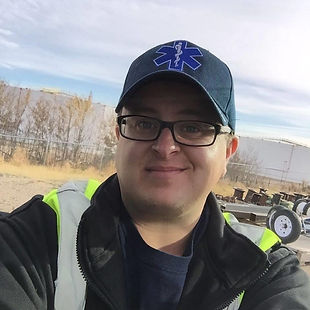
Healthcare Advisory

Service providers who benefit from Diversity & Inclusion training:
-
Medical Clinics
-
Hospitals
-
Long Term Care Facilities
-
Emergency Medical Services (EMS)
-
Dental Offices
-
Medical Imaging Centre
-
Medical & Research Labs
-
Chiropractic Clinics
-
Physiotherapy & Massage
-
Mental Health Agencies
-
Pediatric Care Facilities
-
Eye Care Centres
-
Private Medical Practices
As a healthcare professional for over a decade, I’ve seen both excellent and very poor examples of leadership, inclusivity, and support in various clinics, hospitals, and office spaces. I’ve also been the patient in multiple healthcare facilities, rehabilitation programs, mental health offices, etc., and have witnessed personally just how far we have to go before these spaces can be deemed safe and affirming.
No matter what services you provide, if you work with patients -- in person, virtually, or otherwise -- you and your staff need to know the appropriate language to use, questions to avoid, and specific disparities your patients may experience. You need to ensure that your office or clinic is accessible, affirming, and inclusive to all potential patients/clients and their families.
Are your discrimination policies strict and inclusive? What gender options are on your intake forms? Do your posters and advertisements show a diverse range of people? Is your space accessible for patients who are hard of hearing, blind, or have other invisible disabilities?
We need to make our world accessible and welcoming for everyone who steps through our doors: clients, patients, family members, employees... everyone.
Tolerance isn’t enough. We need to actively do better and create spaces where everyone has a voice and every one of those voices are heard, valued, and respected.
Let me help you create a comfortable and safe space for the people who spend their hard-earned dollars for your services or for those who are already struggling with health conditions. The last thing they need to be focusing on is whether or not they feel safe and supported. That should be a given.
Give me a call, let’s get started today.
“When you work on an ambulance, you're often the first person through the door into some of the worst, most tragic situations that people experience. That immediate connection of trust and comfort is critical. I always enjoyed advocating for my patients and their families - ensuring they were as comfortable as possible, helping to decode medical jargon, and to just be a source of support.”
- B Adair
I've worked as a paramedic since 2010 and the knowledge I've gained, plus with my personal experiences navigating the healthcare system have nurtured my passion for healthcare advocacy.
Healthcare advocacy can be as simple as discussing mental health concerns, hormone replacement therapy, or surgical options for gender diverse individuals or as complex as a total overhaul of existing anti-discrimination and bullying policies or redesigning the environmental aspects of your workplace to be more accessible and affirming.
Navigating gender transition in rural Alberta had its challenges but now I'm privileged to use what I've learned to help others through similar circumstances. Marginalized people often avoid seeking medical treatment because they are afraid to be judged, outed, or even physically assaulted while in the care of health professionals. This is simply unacceptable and we need to do better.
I proudly sit on the Patient and Family Advisory Committee within the Health Quality Council of Alberta (HQCA). My role as an advisor is to identify, study, review, and advise the HQCA on patient safety and quality issues from the perspective of rural Albertans and through the lens of a member of the LGBTQ2S+ community. I assist with designing surveys to measure the experiences of patients, participate in the annual Patience Experience Awards program, and I'm also a member of the HQCA's Diversity & Inclusion working group. When combined, these roles ultimately improve the healthcare system in becoming more inclusive, affirming, and supportive. It's been such an honour to be part of these projects.
I'm also a member of the Alberta Health Services (AHS) Sexual Orientation Gender Identity and Expression (SOGIE) Provincial Advisory Council. This role gives me the incredible opportunity to advise AHS on ways to reduce healthcare disparities for members of the LGBTQ2S+ community. I've seen changes happen and I know there are more on the horizon.
It makes me incredibly hopeful.
